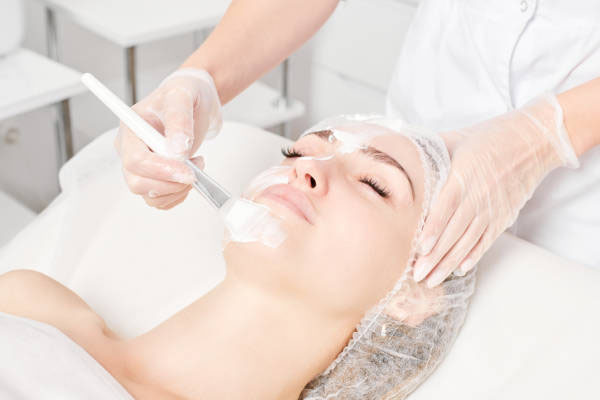What Are the Most Common Types of Skin Conditions?
Explore the diverse world of skin conditions, from acne to eczema, and discover how to recognize, manage, and prevent these common dermatological issues Keep your skin healthy and vibrant with expert insights on skin conditions
Skin conditions are a common occurrence, affecting people of all ages and backgrounds. They encompass a wide range of issues, from minor irritations to chronic diseases. What causes these conditions, and how can you recognize, prevent, and manage them effectively? This article will delve into the world of skin conditions, providing insights into their types, symptoms, and ways to keep your skin healthy and radiant. Whether you're dealing with a specific condition or simply want to learn how to protect your skin, read on to explore the most common types of skin issues and how to address them.

Common Types of Skin Conditions
1. Acne and Pimples
- Causes of Acne - Acne Treatment Options - Tips for Acne Prevention2. Eczema (Dermatitis)
- What Is Eczema? - Types of Eczema - Managing Eczema Symptoms3. Psoriasis
- Understanding Psoriasis - Psoriasis Subtypes - Psoriasis Treatments4. Rosacea
- What Is Rosacea? - Rosacea Triggers - Coping with Rosacea5. Dermatitis
- Dermatitis vs. Eczema - Contact Dermatitis - Atopic Dermatitis6. Skin Infections
- Common Skin Infections - Treatment for Skin Infections - Preventing Skin Infections7. Allergic Reactions and Hives
- Understanding Allergic Reactions - Hives Causes - Managing Allergic Skin Reactions8. Skin Cancer
- Types of Skin Cancer - Skin Cancer Prevention - Skin Cancer Detection and TreatmentUnderstanding Skin Conditions
1. The Importance of Healthy Skin
- Skin as the Body's Largest Organ - Functions of the Skin - The Role of Skin in Appearance2. Common Types of Skin Conditions
2.1 Acne and Pimples
- Causes of Acne - Acne Treatment Options - Tips for Acne Prevention2.2 Eczema (Dermatitis)
- Triggers and Causes of Eczema - Management and Treatments for Eczema - Lifestyle and Diet Considerations2.3 Psoriasis
- Understanding Psoriasis Symptoms - Psoriasis Triggers and Flare-Ups - Medical and Alternative Psoriasis Treatments2.4 Rosacea
- Recognizing Rosacea Symptoms - Rosacea Triggers and Aggravating Factors - Coping Strategies and Rosacea Management2.5 Skin Cancer
- Different Types of Skin Cancer - Risk Factors and Causes of Skin Cancer - Skin Cancer Prevention and Early Detection2.6 Dermatitis (Skin Allergies)
- Common Allergens and Irritants - Treating Dermatitis and Allergic Reactions - Preventing Skin Allergies3. Impact of Skin Conditions
- Physical and Emotional Effects - Social and Psychological Implications - Quality of Life and Self-Esteem4. Seeking Help for Skin Conditions
- When to Consult a Dermatologist - Diagnostic Tests and Procedures - Creating a Skin Care PlanRecognizing and Diagnosing Skin Conditions
1. The Role of Dermatologists
- Importance of Dermatologists in Skin Health - When to Consult a Dermatologist - Dermatological Examinations2. Identifying Common Skin Conditions
2.1 Visual Skin Assessment
- Recognizing Common Symptoms - Self-Examinations at Home - When to Seek Professional Help2.2 Diagnostic Tests and Procedures
- Biopsies and Skin Sampling - Patch Testing for Allergies - Imaging Studies for Deeper Conditions - Blood Tests and Skin Assessments2.3 Specialized Tools and Equipment
- Dermatoscopy and Skin Microscopy - Skin Imaging Technology - Advances in Skin Condition Diagnosis3. The Importance of Early Diagnosis
- Preventing Skin Condition Progression - Skin Cancer Early Detection - Timely Treatment for Better Outcomes4. Seek Professional Guidance
- When Self-Diagnosis Isn't Enough - Collaboration with Dermatologists - Effective Communication with Healthcare ProvidersManaging and Treating Skin Conditions
1. Lifestyle and Self-Care Strategies
1.1. Daily Skincare Routine
- Choosing the Right Skincare Products - Proper Cleansing and Moisturizing - Sun Protection and Avoiding Irritants1.2. Nutrition and Diet
- Impact of Diet on Skin Health - Foods that Promote Healthy Skin - Hydration and Skin Condition1.3. Stress Management
- Effects of Stress on Skin Conditions - Relaxation Techniques - Incorporating Stress Reduction into Daily Life2. Topical Treatments and Medications
2.1. Over-the-Counter (OTC) Products
- Types of OTC Skin Treatments - Proper Application and Usage - Caution and Side Effects2.2. Prescription Medications
- Dermatologist-Prescribed Treatments - Antibiotics and Topical Retinoids - Corticosteroids and Immune Modulators3. Specialized Procedures and Therapies
3.1. Phototherapy and Light Treatments
- UV Therapy for Skin Conditions - Laser Therapy - Targeted Light-Based Treatments3.2. Cryotherapy and Chemical Peels
- Freezing and Removing Skin Lesions - Chemical Peels for Skin Rejuvenation - Precautions and Recovery3.3. Surgical Interventions
- Skin Lesion Excisions - Mohs Surgery for Skin Cancer - Plastic Surgery for Cosmetic Concerns4. Holistic Approaches and Complementary Therapies
- Natural Remedies and Herbal Treatments - Acupuncture and Traditional Chinese Medicine - Mind-Body Practices for Skin HealthPreventing Skin Conditions
1. Daily Skincare Routine and Hygiene
1.1. Cleansing
- Importance of Proper Cleansing - Choosing the Right Cleanser - Frequency and Techniques1.2. Moisturizing
- Hydration and Skin Health - Selecting an Appropriate Moisturizer - Application Methods1.3. Sun Protection
- Significance of Sunscreen - Sunscreen Types and SPF Ratings - Effective Sun Protection Practices2. Balanced Diet and Nutrition
2.1. Foods for Healthy Skin
- Nutrient-Rich Foods - Impact of Antioxidants - Hydration and Water Intake2.2. Skin-Boosting Supplements
- Essential Vitamins and Minerals - Dietary Supplements for Skin Health - Consultation with a Healthcare Professional3. Environmental and Lifestyle Factors
3.1. Protecting Against Harsh Weather
- Cold Weather Precautions - Sun Protection in Hot Climates - Adaptation to Seasonal Changes3.2. Avoiding Skin Irritants
- Identifying Common Irritants - Suitable Clothing and Fabrics - Reducing Allergen Exposure3.3. Healthy Habits
- Effects of Smoking and Alcohol - Stress Reduction Techniques - Adequate Sleep and Rest4. Regular Skin Examinations
4.1. Self-Examinations
- How to Conduct a Self-Examination - Recognizing Changes and Abnormalities - Frequency of Self-Exams4.2. Professional Skin Checkups
- Importance of Dermatologist Visits - Recommended Screening Frequency - Early Detection and Prevention5. Protective Measures and Clothing
5.1. Sun-Protective Clothing
- UV-Blocking Clothing - Sun Hats and Sunglasses - Covering Vulnerable Areas5.2. Occupational Safety Gear
- Protective Equipment for Work - Reducing Workplace Skin Hazards - Compliance with Safety StandardsFAQs: Preventing Skin Conditions
Q1: How can a daily skincare routine help prevent skin conditions?
A1: A consistent daily skincare routine is essential for preventing skin conditions. Proper cleansing, moisturizing, and applying sunscreen can maintain skin health by removing impurities, retaining moisture, and shielding against harmful UV rays.
Q2: What should I include in a diet to promote healthy skin?
A2: A diet for healthy skin should include nutrient-rich foods such as fruits, vegetables, and lean proteins. Antioxidants, vitamins, and minerals found in these foods can benefit skin health. Adequate hydration by drinking water is also crucial.
Q3: How can I protect my skin from harsh weather conditions?
A3: Protecting your skin from harsh weather involves adapting to climate conditions. In cold weather, wear appropriate clothing to retain warmth. In hot climates, use sunscreen, hats, and sunglasses to shield against excessive sun exposure. Seasonal adjustments are key.
Q4: What are common skin irritants, and how can I avoid them?
A4: Common skin irritants include harsh soaps, allergens, and rough fabrics. To avoid them, choose mild skincare products, wear hypoallergenic clothing, and minimize contact with known irritants. Reducing allergen exposure is vital for skin health.
Q5: Why is regular skin examination important, and how can I perform one?
A5: Regular skin examinations help in early detection and prevention. To conduct a self-examination, inspect your skin for unusual moles, rashes, or changes. Professional skin checkups with a dermatologist are also recommended for a thorough assessment and early intervention.
